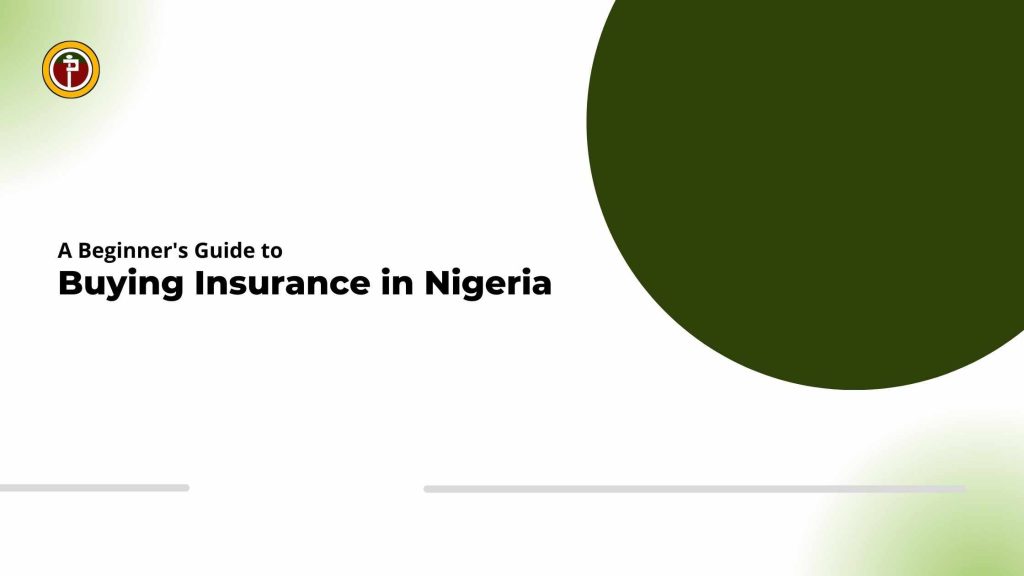Small and medium-scale enterprises (SMEs) are the backbone of Nigeria’s economy, driving innovation and growth. However, these businesses face risks that can threaten their sustainability. From fire and burglary to employee injuries and transportation mishaps, unforeseen events can lead to significant financial losses.
Insurance is a critical tool for managing these risks. Adequate coverage not only protects SMEs from potential disasters but also provides peace of mind, allowing you, as a business owner, to focus on growth. In this post, we’ll explore essential insurance policies for SMEs in Nigeria and how they can safeguard your business against uncertainties, ensuring long-term stability and success.
Defining SMEs
Small and medium-scale enterprises (SMEs) play a crucial role in Nigeria’s economic landscape. Typically, SMEs are defined based on their revenue and the number of employees. If your business generates less than 20 million Naira annually and has a relatively small workforce, it likely falls into this category.
In Nigeria, the government recognizes the importance of SMEs by providing certain benefits, such as tax exemptions for businesses below specific revenue thresholds. By understanding these definitions, you can correctly identify your business and take advantage of the available support and resources.
Accurate classification of SMEs helps tailor policies and support systems that promote growth and sustainability within this vital sector of the economy.
Essential Insurance Policies for SMEs
1. Compulsory Policies:
- Group Life Insurance: Required for any employer with at least three employees, this policy ensures that in the event of an employee’s death, their beneficiaries receive compensation.
- Employer’s Liability Insurance: Covers compensation for employees injured while on business premises.
- Motor Insurance: Particularly third-party insurance, is mandatory for businesses with vehicles.
2. Highly Recommended Policies:
- Fire and Burglary Insurance: Protects against losses from fire and burglary. In light of recent market fires, such as the incident at the Ariaria Market in Aba, Abia State, and the Wuse Market in FCT Abuja, Tejuosho, Balogun, and Idumota Markets, Lagos State, to mention a few, the importance of this policy cannot be overemphasized. It safeguards against the complete loss of stock and premises, providing vital financial recovery support.
- Goods in Transit Insurance: Ideal for businesses involved in transportation, this policy covers goods from the point of loading to delivery. It can be taken as an “all-risk” cover, which includes all kinds of damages, or a “restricted cover,” focusing specifically on accidental damages.
- Health Insurance: Although not compulsory, it is crucial for ensuring your employees’ health and productivity.
Settlement of Claims
A significant concern within the insurance industry is the perceived reluctance of insurance companies to settle genuine claims promptly. It is crucial to understand that claims are typically settled promptly when proper procedures are followed:
Claims Reporting: Ensure that losses are reported promptly to the police and insurance companies.
Documentation: Adequate documentation and timely notification of a claim to the insurer are vital for prompt claim settlement; forwarding relevant documents, including completed claims form, pictures of the loss incident, police report, estimate of loss, etc.
Special Perils and Buy-Back Clauses
It’s essential to understand the exclusions in insurance policies, such as the common exclusion of riots and civil commotion from burglary insurance. To ensure comprehensive protection, consider purchasing additional cover or “buy-back” clauses that include these specific risks. This approach provides a more robust safety net for your business against unexpected events.
Fire and Special Perils Insurance
This extended cover includes protection against fire, explosion, lightning, earthquake, flood, and malicious damage. SMEs should opt for fire and special perils insurance to cover a wider range of risks.
Importance of Insurance Brokers
Utilizing insurance brokers can help SMEs understand and navigate the complexities of insurance policies, ensuring they get the right coverage for their specific needs. Brokers provide valuable advice on policy details, exclusions, and necessary additional coverage.
In conclusion, insurance is a vital tool for mitigating risks and ensuring the stability and growth of SMEs. From compulsory policies like group life and employer’s liability to essential covers like fire, burglary, and goods in transit, having the right insurance can protect against unforeseen losses and provide peace of mind.
SMEs are encouraged to engage with insurance brokers to tailor policies to their unique needs and ensure compliance with legal requirements. For any claims issues, consulting with experienced brokers can facilitate quicker and more efficient resolutions.
Microinsurance is a special insurance offering tailored for businesses in this category, especially for very low-income businesses and business owners.
For more information and personalized advice on insurance and microinsurance policies for your business, feel free to contact us at Transparent Protection Limited/Gte. We are here to help you safeguard your business and secure your financial future.
Take advantage of the next article, subscribe now!
Have questions about claim settlements or need assistance with your insurance policy? Our team is here to help! Reach out to us via email at info@tplng.com or give us a call at 0905-776-6182. We’re committed to ensuring genuine claim settlements and supporting our valued members.
TPL, your satisfaction is our priority.



